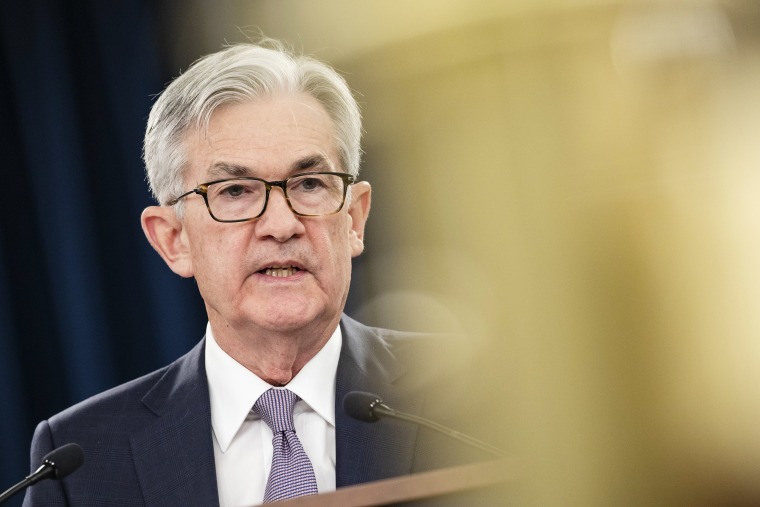If President Donald Trump wins re-election in November, he could throw the economy into disarray with an assault on the Federal Reserve as he seeks to remake the central bank in his own image — and compliant with his whims.
"If Trump wins the election, he'll believe he has a mandate to fire" Federal Reserve Chairman Jerome Powell, said Mitchell Goldberg, president of ClientFirst Strategy.
Trump has threatened to dismiss Powell — whom he tapped in 2017 to head the Fed — but Powell has responded by saying that he believes he cannot be fired without cause and that he will not resign. Firing or demoting Powell would be legally fraught, and some suggest that Trump might not want to risk losing an almost inevitable court fight if he tried to fire Powell before his term as chairman is up in 2022.
"It would be very unpopular and difficult to fight in the courts, firing Powell. I think he would lean towards letting him finish out his term and pushing forward someone he has designated on the board to run it, with the hopes that he, as president, would have more influence on Fed policy going forward," said Danielle DiMartino Booth, CEO and chief strategist of Quill Intelligence.
Some suggest that Trump loyalist Judy Shelton could be a chairwoman-in-waiting. Shelton, a former Trump campaign adviser and outspoken critic of the Fed, is scheduled to meet with the Senate Banking Committee on Thursday.
Download the NBC News app for breaking news
Shelton has stirred concern by questioning the need for the Fed's independence, a stance that would align her with Trump but put her at odds with mainstream economists.
"It is encouraging to see that some members of the Senate are voicing skepticism about Judy Shelton," said Kenneth Kuttner, an economics professor at Williams College in Williamstown, Massachusetts. "That's slightly reassuring."
Kuttner characterized central bank independence as a critical firewall that lets policymakers focus on economic rather than political goals.
"The Fed is the one bright spot ... thank goodness. It's structurally very independent," he said.
The policymaking Federal Reserve Board of Governors is a seven-member body; two seats are vacant. Trump has appointed four of the current five members, including Powell.
Kuttner pointed to previous attempts by Trump to install loyalists with little background in economics or monetary policy. Nominees Stephen Moore and Herman Cain withdrew their names from consideration once Senate approval looked unlikely.
"I think the problem goes beyond just the rift with Powell," Kuttner said.
Trump's goal for a more compliant Fed is both clear and very, very risky, experts say, given the president's often-stated desire for interest rates at — or even below — zero percent.
"I think that Trump's dream would be to get somebody to impose negative interest rates in this country," DiMartino Booth said, calling such a move a "step into the abyss."
Negative interest rates in Japan and some Eurozone countries have contributed to economic stagnation and have left policymakers with no clear path to return to normal.
"Where we've seen negative interest rates before, I can't point to one example where it's actually worked," said Mitchell Goldberg, president of ClientFirst Strategy.
"Trump's dream would be to get somebody to impose negative interest rates in this country," said one analyst. But negative interest rates abroad have contributed to economic stagnation.
"For one thing, it would absolutely hurt all kinds of lending — business lending, consumer lending. Banks need to make money by making loans, and if there's no access to credit, companies can't borrow today for the future," Goldberg said.
Negative interest rates also are terrible for ordinary people, said Karen Shaw Petrou, managing partner of the consulting firm Federal Financial Analytics.
"I think negative interest rates are just about the worst things we could do for economic inequality, because they destroy savings, threaten retirements and evaporate pensions," Petrou said. "And if the economy is in a recession, which is blighting what Trump thinks of as his legacy, I think the results are far less predictable."
Goldberg said: "People will act based on what's in their best interest now, not in the long-term best interest of the U.S. economy."
"It could take a few years for poor policy decisions to be felt, but once they are felt, they could last for years, and then it's even harder to get things back on track," he said.
